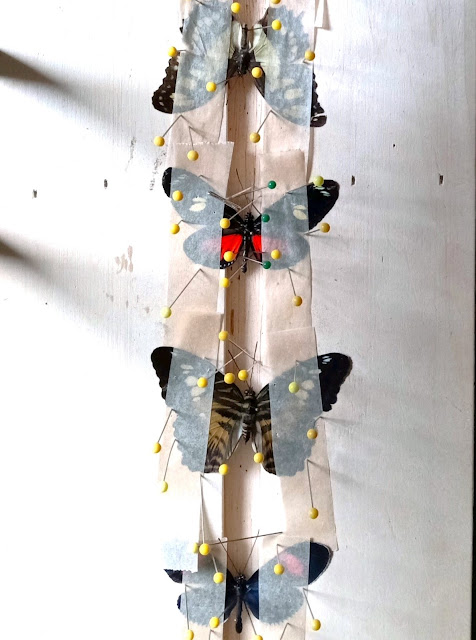Questionable Practices
With squinted eyes, endless ball-point pins, and the occasional grumble, our small group dutifully practiced our insect pinning skills on elegant, tropical butterflies. I had originally planned a butterfly pinning workshop with the intention of exposing members of the public to one of the many, diverse skillsets we practice in collections.
 |
| Program participants had the chance to practice preparing butterflies to museum-quality standards during Butterfly Pinning, the first attempt at this public workshop during my time here. |
I quickly assured our audiences that our actions were not so detrimental, typing, "The butterflies we are using have been found dead and saved for the purpose of this class. We do not advocate for people to collect live butterflies to pin for hobby."
This is certainly not the first time I've had to answer for my work. As stewards and storytellers of Northwoods natural history, our naturalists have taken on a large responsibility and one that requires we constantly reflect on our practices, contents of our specimen collections, and broader ethics. We recognize that as an organization - especially as a museum of natural history - we have a lot of work to do.
One piece of work is to welcome the input of our communities. So, to the aforementioned commenter, thank you for speaking up and holding us accountable. I've learned to be more up-front about our practices and to think more deeply about how I publicize what we do.
